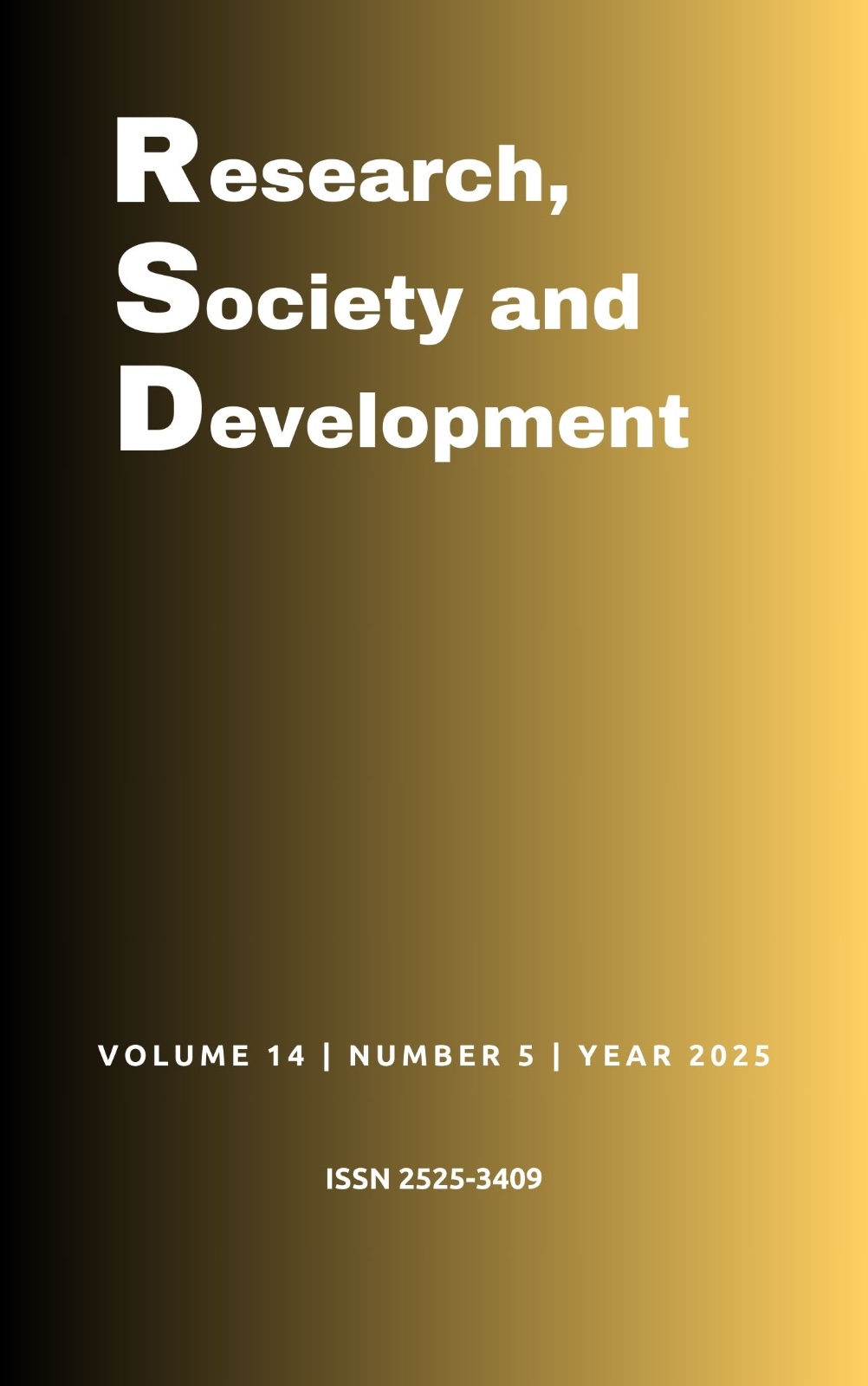Pattern recognition in hate speech detection: a neural network and ensemble approach
DOI:
https://doi.org/10.33448/rsd-v14i5.48633Keywords:
Hate Speech, Machine Learning, Natural Language Processing.Abstract
Hate speech on online platforms is a growing problem with significant social impacts. This work proposes an approach for binary classification of hate speech in Portuguese texts using machine learning and deep learning algorithms. The experiments were conducted on an annotated dataset, with textual representations generated by pre-trained GloVe word embeddings. The voting-based model, which combines the outputs of the base classifiers, achieved the best overall performance, reaching an F1-score of 0.76. The results demonstrate the effectiveness of neural networks, especially in capturing complex textual patterns, and highlight the potential of combined approaches for the hate speech classification task. This study reinforces the importance of exploring diverse architectures and preprocessing techniques tailored to the specific characteristics of the Portuguese language.
Downloads
References
Asogwa, D. C., Chukwuneke, C. I., Ngene, C. C., & Anigbogu, G. N. (2022). Hate speech classification using SVM and Naive Bayes. IOSR Journal of Mobile Computing & Application (IOSR-JMCA), 9(1), 27–34. https://doi.org/10.9790/0050-09012734
Cortes, C. (1995). Support-vector networks. Machine Learning.
Badjatiya, P., Gupta, S., Gupta, M., & Varma, V. (2017). Deep learning for hate speech detection in tweets. In Proceedings of the 26th International Conference on World Wide Web Companion (pp. 759–760).
d’Sa, A. G., Illina, I., & Fohr, D. (2020). Classification of hate speech using deep neural networks. Revue d’Information Scientifique & Technique, 25(1). HAL Id: hal-03101938. https://hal.science/hal-03101938v1
Ferreira, M. C. dos S., & Teixeira, T. (2024). Social media and political polarization as threats to democracy. Research, Society and Development, 13(7), e7713746214–e7713746214.
Fortuna, P., da Silva, J. R., Wanner, L., Nunes, S., et al. (2019). A hierarchically-labeled Portuguese hate speech dataset. In Proceedings of the Third Workshop on Abusive Language Online (pp. 94–104).
Fortuna, P., & Nunes, S. (2018). A survey on automatic detection of hate speech in text. ACM Computing Surveys (CSUR), 51(4), 1–30.
Gambäck, B., & Sikdar, U. K. (2017). Using convolutional neural networks to classify hate-speech. In Proceedings of the First Workshop on Abusive Language Online (pp. 85–90). Vancouver, Canada: Association for Computational Linguistics. https://aclanthology.org/W17-3013
Hartmann, N., Fonseca, E., Shulby, C., Treviso, M., Rodrigues, J., & Aluísio, S. (2017). Portuguese word embeddings: Evaluating on word analogies and natural language tasks. arXiv preprint, arXiv:1708.06025.
Hochreiter, S. (1997). Long short-term memory. Neural Computation MIT-Press.
Pereira, A. S., Shitsuka, D. M., Parreira, F. J., & Shitsuka, R. (2018). Metodologia da pesquisa científica. Brasil.
Rakhlin, A. (2016). Convolutional neural networks for sentence classification. GitHub, 6, 25.
Silva, S. C., & Serapião, A. B. S. (2018). Detecção de discurso de ódio em português usando CNN combinada a vetores de palavras. In Anais do VI Symposium on Knowledge Discovery, Mining and Learning (pp. 1–8). SBC.
Waseem, Z., & Hovy, D. (2016). Hateful symbols or hateful people? Predictive features for hate speech detection on Twitter. In Proceedings of the NAACL Student Research Workshop (pp. 88–93).
Downloads
Published
Issue
Section
License
Copyright (c) 2025 Filipe Cordeiro de Medeiros Azevedo

This work is licensed under a Creative Commons Attribution 4.0 International License.
Authors who publish with this journal agree to the following terms:
1) Authors retain copyright and grant the journal right of first publication with the work simultaneously licensed under a Creative Commons Attribution License that allows others to share the work with an acknowledgement of the work's authorship and initial publication in this journal.
2) Authors are able to enter into separate, additional contractual arrangements for the non-exclusive distribution of the journal's published version of the work (e.g., post it to an institutional repository or publish it in a book), with an acknowledgement of its initial publication in this journal.
3) Authors are permitted and encouraged to post their work online (e.g., in institutional repositories or on their website) prior to and during the submission process, as it can lead to productive exchanges, as well as earlier and greater citation of published work.


